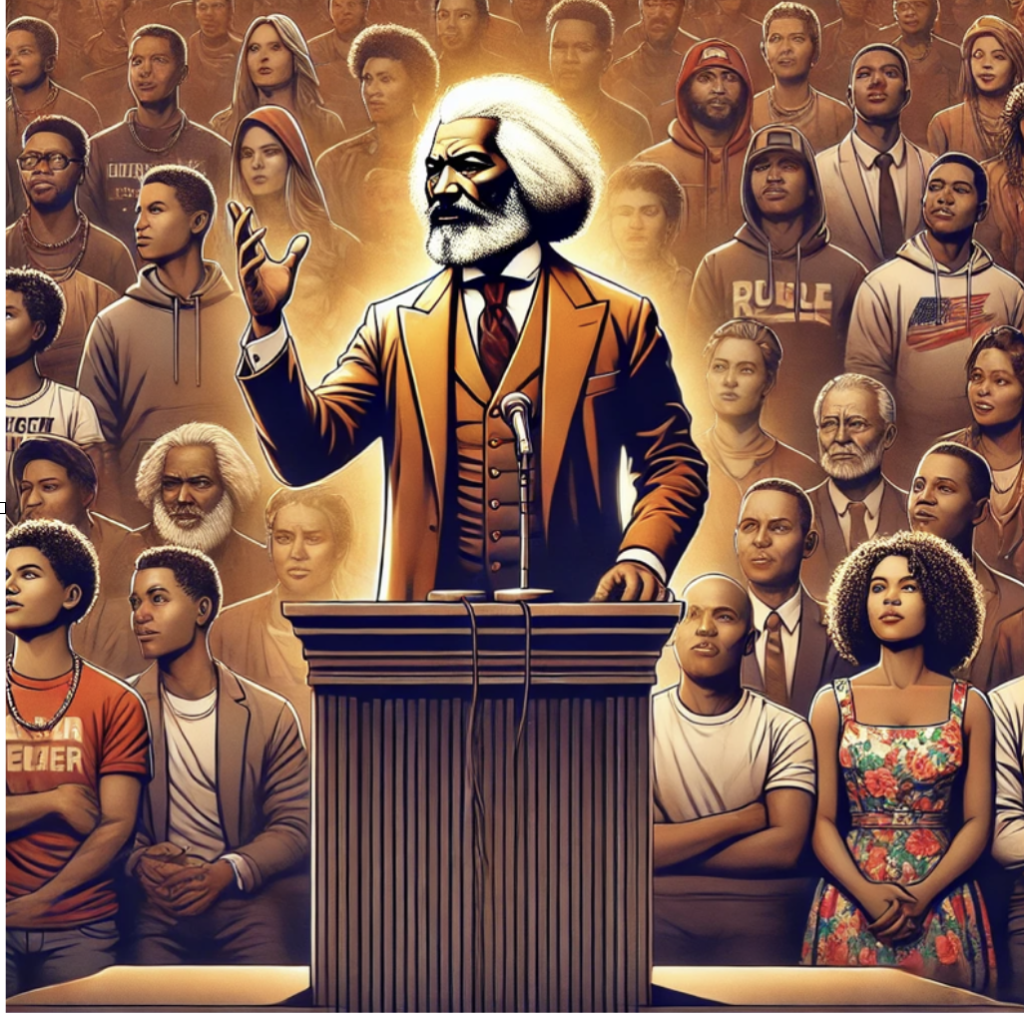
Please Follow us on Gab, Minds, Telegram, Rumble, Gettr, Truth Social, Twitter
In the spirit of Frederick Douglass, the self-liberated man who defied every chain meant to hold him down, I find myself grappling with the modern ideology of Diversity, Equity, and Inclusion (DEI). It is not that the concept of equity is inherently flawed, nor that inclusion is unwelcome; rather, the industry built around DEI seems to have gone astray. Instead of uplifting individuals, it often encourages them to see themselves as victims instead of victors. If there’s one lesson Douglass imparts, it's that self-determination and personal excellence outweigh all obstacles.
For those unfamiliar, Frederick Douglass was not merely a man of his time but a visionary ahead of it. Born into slavery and fueled by his own courage and resolve, he taught himself to read and write when such actions were punishable by death. He became a prolific orator, writer, and abolitionist, eventually advising President Abraham Lincoln. By the time of his death, Douglass emerged as one of the wealthiest men of his era, a testament to the strength of grit, intelligence, and an unshakeable belief in his own worth.
Let’s be honest: Frederick Douglass likely wouldn’t be invited to keynote your average DEI seminar. He would stand at the lectern, pause, and then deconstruct the idea of viewing individuals solely as representatives of their racial or social categories instead of as unique, capable beings. He believed that freedom came not from handouts or lowered expectations but from opportunity and effort.
Today's DEI playbook, in contrast, often does the opposite. By framing marginalized communities as inherently disadvantaged, it risks fostering a culture of dependency and resentment. Rather than encouraging individuals to tackle challenges, it suggests, “The system is rigged, and you are powerless without intervention.” This stands in direct opposition to what America is supposed to represent.
If we want a nation where equity truly thrives, we should focus on empowering individuals through education, experience, and merit-based opportunities, rather than perpetuating a narrative of systemic helplessness. Excellence, not victimhood, should be the gold standard. This isn’t merely a feel-good platitude but the formula for a new golden age for the United States.
Let’s consider how Douglass might have approached the modern workplace. Faced with barriers, he would likely do what he always did: learn, strategize, and excel until he overcame them. He wouldn’t waste his energy on grievances but would channel it into accomplishments. Yet, he would not expect the world to bend to him simply because of his struggles. He believed in equality of opportunity, not equality of outcome.
The irony is that Douglass achieved more for inclusion without a corporate diversity officer. Through his actions, he proved that intelligence and character, not skin color, matter most. By his example, he elevated not only himself but also the perception of an entire race. Our modern DEI apparatus would do well to revisit this lesson.
If America is to continue its progress, it must return to a simple, though demanding, idea: Treat people as individuals, not as victims of arbitrary categories. Judge them by their abilities and contributions, not by their grievances or identities. Equity, in its truest sense, means creating a society where everyone has the chance to thrive based on their talents and determination. That, however, is actually the definition of Equality.
Frederick Douglass didn’t need a DEI consultant to achieve greatness. What he needed was opportunity and a belief in his own potential—two things America, at its best, has always offered. Let us honor his legacy not by teaching future generations to see themselves as victims, but as victors. That is the DEI America truly needs.
And if Douglass were alive today, I can imagine he’d close his speech with something like this: “Dear friends, do not wait for a committee or a consultant to validate your worth. Get up, take the reins, and make something of yourself.”
Wise words and an even wiser path forward.